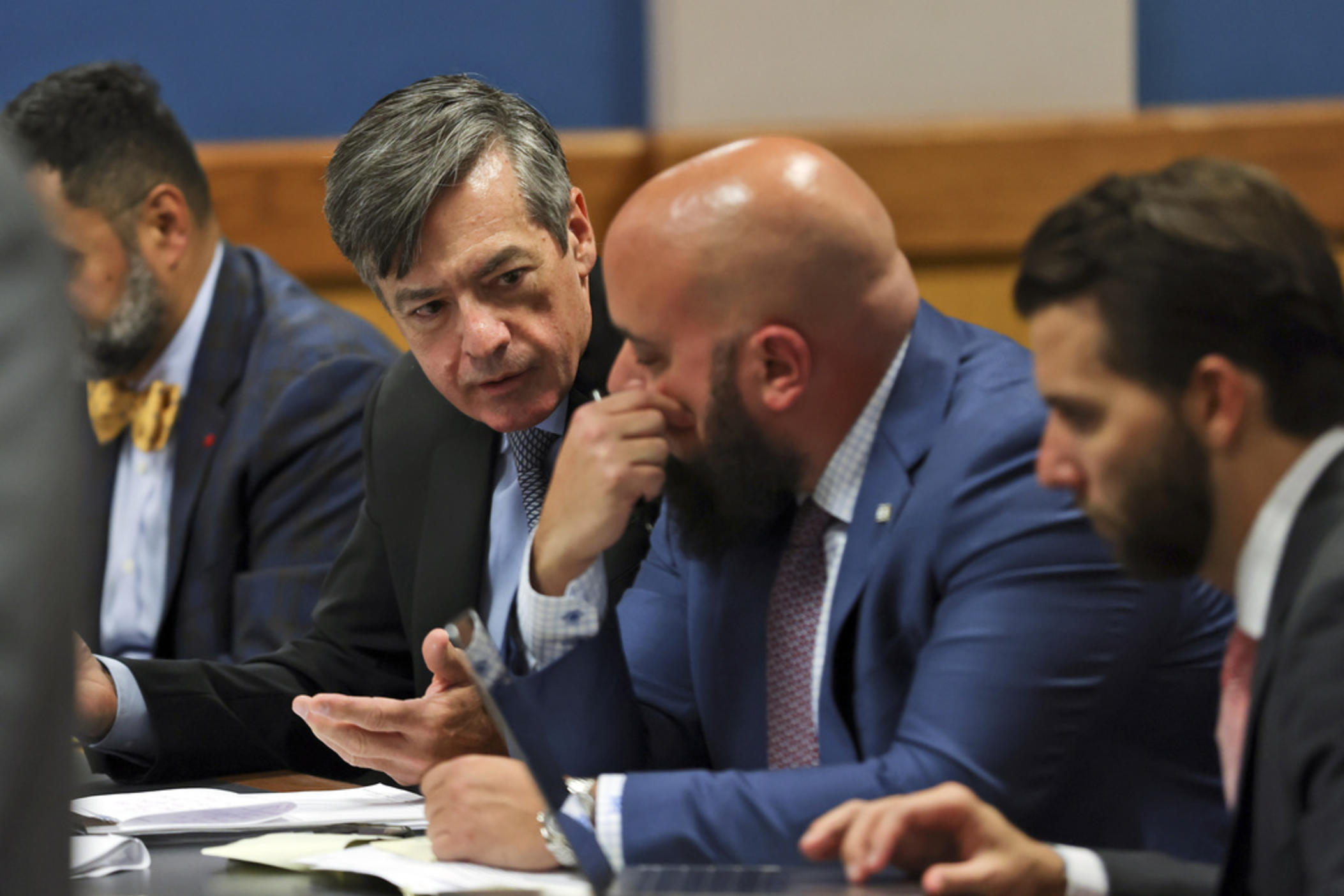Section Branding
Header Content
Alex Jones, Ronna McDaniel potential witnesses in Sidney Powell and Kenneth Chesebro's Georgia trial
Primary Content
The Georgia prosecutor who has accused former President Donald Trump and others of trying to illegally overturn the 2020 presidential election in the state is seeking to call Republican Party Chair Ronna McDaniel and conspiracy theorist Alex Jones as witnesses in a trial for two of the defendants scheduled to begin later this month.
Sidney Powell and Kenneth Chesebro were indicted by a Fulton County grand jury in August along with Trump and 16 others, accused under the state's anti-racketeering law of participating in a wide-ranging illegal scheme to overturn the 2020 presidential election in Georgia. The two attorneys are being tried separately from the others because they invoked their right to have a speedy trial. A group of 450 potential jurors has been instructed to show up on Oct. 20 to begin the process of seating a jury.
All 19 defendants initially pleaded not guilty, but one pleaded guilty to lesser charges last month after reaching a deal with prosecutors.
Fulton County Superior Court Judge Scott McAfee has been holding hearings on pretrial motions, including one Tuesday, and has more scheduled as the trial date approaches. Separately, the parties have begun to disclose the names of possible witnesses in the case.
Fulton County District Attorney Fani Willis on Monday filed paperwork required to compel the testimony from an out-of-state witness, documents that function like a subpoena, for three people — McDaniel, Jones and Andrew Hitt, who was chairman of the Wisconsin Republican Party in late 2020. She had filed similar paperwork for six other people last week, including Trump adviser Boris Epshteyn and Lin Wood, a prominent defamation attorney and ardent Trump supporter who publicly disputed the outcome of the 2020 election.
Powell is accused of participating in a breach of election equipment in rural Coffee County. She's alleged to have hired and paid a computer forensics team that copied data and software from the election equipment without authorization.
Chesebro is accused of working on the coordination and execution of a plan to have 16 Georgia Republicans sign a certificate declaring falsely that Trump won and declaring themselves the state's "duly elected and qualified" electors.
Prosecutors allege that McDaniel participated in a December 2020 phone call with Trump and another defendant, lawyer John Eastman, during which she was told "the importance of the RNC helping the campaign gather 'contingent' electors." She also forwarded an email to the then-president's executive assistant including a list of "Six Contested States," including Georgia and the electoral votes that had been cast for Trump in each one, prosecutors wrote.
Jones participated in a "Stop the Steal" rally at the Georgia state Capitol on Nov. 18, 2020, and in a march on the U.S. Capitol on Jan. 6, 2021, along with members of the Proud Boys and Oath Keepers, prosecutors said in a court filing. Video shows Chesebro marching on the U.S. Capitol with Jones, prosecutors wrote.
Norm Pattis, an attorney for Jones, said his client intends to resist the subpoena and would assert his Fifth Amendment right if called to testify.
The others whose testimony is sought include others who were involved in the so-called alternate electors plan in multiple swing states that Trump, the Republican incumbent, lost to Democrat Joe Biden.
In filings with the court, Chesebro's attorneys have indicated they could call witnesses including journalists, attorneys, Trump campaign officials and Republicans who signed the certificates claiming they were Trump electors. His list includes some of the people prosecutors are seeking to call, including McDaniel and Wood.
At a hearing Tuesday, McAfee heard arguments on several motions filed by Chesebro. One seeks to dismiss the indictment as a violation of the U.S. Constitution's Supremacy Clause. A second argues Chesebro's actions outlined in the indictment were protected by the First Amendment, so the indictment should be dismissed. The judge didn't immediately rule on either motion but indicated that the arguments advanced by Chesebro's attorneys may be procedurally improper for pretrial motions.
A third motion argued that any legal memos or correspondence between Chesebro and the Trump campaign, which was his client in the aftermath of the 2020 election, should be excluded. McAfee grilled the lawyers for both sides on this issue and asked them to provide additional information to help him make a decision.


